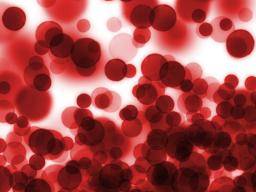- What is anemia?
Anemia is a medical condition defined as low haemoglobin concentration in the blood. Haemoglobin is a protein molecule that is responsible for attaching to oxygen and carrying that oxygen to different parts of the body. It is essentially a transporter of oxygen.
In the case of anemia (where there is a low haemoglobin concentration in the blood), there is less haemoglobin to attach to oxygen. Hence, a lack of oxygen travelling to our vital organs, such as the heart, the lungs, the brain, the kidneys and the liver. With a lack of oxygen going to these organs, the organs do not function as optimally as they should.
Anemia comes in a whole bunch of different shapes and sizes, literally. But typically anemia has many causes (depending on white type of anemia you have). Some types of anemia can be a genetic condition or it can be acquired.
- What are the types of anemia?
Firstly, the anemia that is acquired through life. These are called deficiency anaemias. Some include iron deficiency, folate deficiency or Vitamin B12 deficiency.
Iron deficiency is an acquired anemia. However its reasoning is simple, the affected individual has a lack of iron. Iron is an element that is found attached to haemoglobin, which essentially becomes a red blood cell. Therefore with a lack of it, there is a lack of haemoglobin too.
Iron deficiency can be because the body is not absorbing dietary iron, or the affected individual is not eating enough iron or even because of blood loss. Folate deficiency and Vitamin B12 are most associated with a lack of dietary consumption.
The next class of anemia is hereditary (those that you gain through genetics). These include sickle cell anemia, thalassemia and haemolytic anemia. These are conditions is which your body does not created normal morphological (shaped) red blood cells or your body does not make enough red blood cells or your body destroys the normal red blood cells before it can be used.
These are more severe anaemias. Although within each type, there is a range of severity. Sometimes the individuals are asymptomatic and sometimes they have mild to moderate symptoms. It all depends on the individual.
- What are the symptoms of anemia?
Apart from the fatigue and tiredness, anemia is quite silent in symptoms. But other symptoms of anemia include pale skin and general weakness of the body. But in some severe cases, you may experience shortness of breath, rapid heart beat (palpitations), dizziness and lost of consciousness. If you are experiencing any of these severe symptoms, it is recommended that you get it checked by a doctor.
- Should I be worried if I have anemia?
Do not get worried just yet. Anemia sounds scary and daunting but in reality, it usually does not progress to severe organ damage. In most cases, those who have anemia are treated promptly and appropriately to prevent from any further injury or symptoms. Oddly enough, a lot of Malaysians are affected by anemia. Therefore it is important that they check which type of anemia they be given adequate treatment.
------------------------------------------------------------------------------------------------------
Article is written by:
Fatin Najwa binti Daud, is a medical student studying at IMU Malaysia. She is a freelance writer of this blog at Zaahara. Interests include music, art, sports and travel.
-Photos are taken from google images
© 2016 Zaahara Ventures Sdn. Bhd.




Comment
My name is Matt. I’m here to say a very big thanks to Priest Salami and his great Oracle for saving my marriage. No one would have believe that I and my wife will ever come back together again as lovers. But this great spell caster reunited us in just 48hours. Priest Salami is truly a real and honest online spell caster. Contact him now on: purenaturalhealer@gmail.com. Whatsapp number: +2348143757229